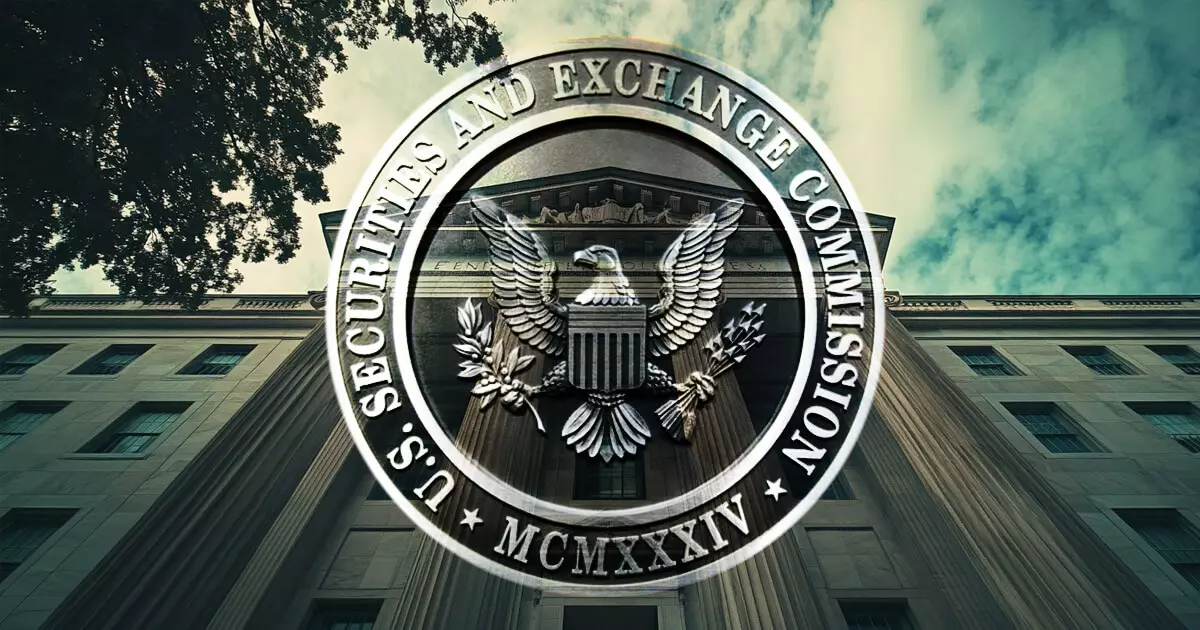In a significant legal development for the cryptocurrency industry, TrustToken and TrueCoin, the entities responsible for the TrueUSD (TUSD) stablecoin, have recently finalized a settlement with the U.S. Securities and Exchange Commission (SEC). This settlement arises from serious allegations of fraudulent practices and the unregistered sale of investment contracts related to TUSD. By agreeing to pay a total of $700,000 in fines without admitting any wrongdoing, the companies are not only navigating legal waters but are also positioning themselves within an increasingly complex regulatory landscape.
The SEC’s complaint, filed in the Northern District of California, reveals a concerning narrative surrounding the conduct of TrustToken and TrueCoin. It alleges that between November 2020 and April 2023, the companies sold TUSD as investment contracts through their TrueFi lending protocol without proper registration. More alarmingly, the SEC claimed that TUSD was falsely marketed as being fully backed by U.S. dollars or similar equivalents, while in reality, a considerable portion of the assets was tied up in a speculative offshore fund. By March 2022, this fund had absorbed more than half a billion dollars earmarked for backing TUSD, raising flags about the financial integrity and transparency of the stablecoin.
This situation highlights a critical tension in the cryptocurrency sector: the allure of high returns through speculative investments versus the fundamental need for investor protection and transparency. As delineated by Jorge G. Tenreiro, Acting Chief of the SEC’s Crypto Assets & Cyber Unit, the failure to register led to a significant information gap that left investors vulnerable and ill-informed. The essence of these regulations is rooted in the protection of investors, a principle that remains vital in fostering trust in financial markets.
The settlement gives TrustToken and TrueCoin a chance to alleviate ongoing legal and operational distractions, allowing them to pivot their focus towards innovation and business opportunities. By avoiding a protracted legal battle, they may also seek to enhance their compliance infrastructure to align with SEC regulations moving forward. This decision, however, raises questions about whether the choice to settle signals a broader acknowledgment of the regulatory environment or if it’s a tactical retreat from an unsustainable position.
The agreed-upon civil penalties—amounting to $163,766 for each company, as well as additional disgorgement and prejudgment interest—while significant, underscore the potential for more stringent repercussions if firms neglect regulatory compliance in the cryptocurrency sector. Regulatory oversight has proliferated within the crypto landscape, and firms must navigate this evolving regulatory framework with care.
Market Reactions and the Health of TrueUSD
Following the announcement of the settlement, TrueUSD experienced a notable de-peg from its intended value of $1, which reflects broader market dynamics and investor sentiment. From a market cap of approximately $494 million, the stablecoin struggled to maintain its peg, dropping to $0.98 shortly after the settlement was disclosed. The underlying mechanics of stablecoins, especially in a context rife with allegations and regulatory scrutiny, raise vital questions about their resiliency and reliability as currency alternatives.
The fluctuations in TUSD’s peg reflect the market’s response to regulatory actions and underscore the inherent risks associated with the adoption of stablecoins, especially those that operate in a somewhat opaque manner. In an environment where investor confidence is paramount, maintaining transparency and ongoing compliance with regulations becomes essential for the long-term health of these digital assets.
The Bigger Picture: Regulatory Implications for Cryptocurrency
The TrueUSD settlement comes at a pivotal time for the cryptocurrency industry, which has witnessed an intensification of regulatory scrutiny. The SEC’s collection of $4.68 billion in fines from the crypto sector in 2024 serves as a wakeup call for other fintech firms. As compliance frameworks become more rigorous, companies operating within the cryptocurrency domain must adapt proactively, engaging with regulators to ensure they are not only following laws but also embracing principles of ethical transparency and accountability.
This case serves as a microcosm of the issues facing the cryptocurrency industry at large. As regulators aim to create a more structured environment for digital assets, the need for clear, enforceable guidelines becomes paramount. Moving forward, the industry’s success will fundamentally rely on its ability to strike a balance between growth and regulatory compliance—ensuring that innovations do not come at the expense of investor protection and market integrity.

